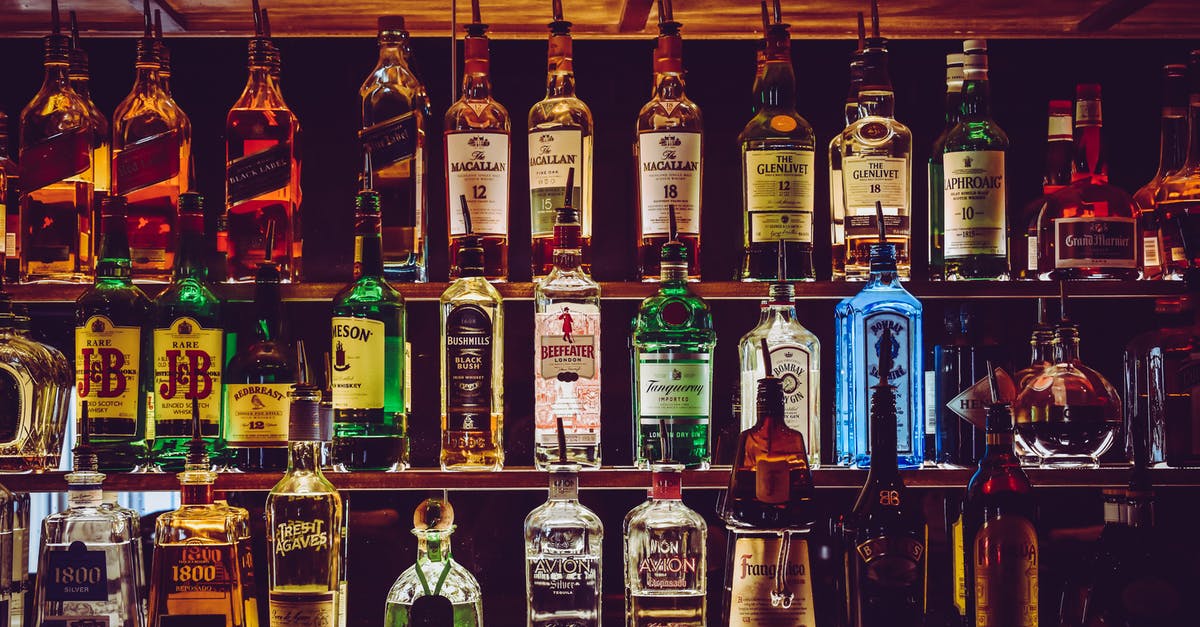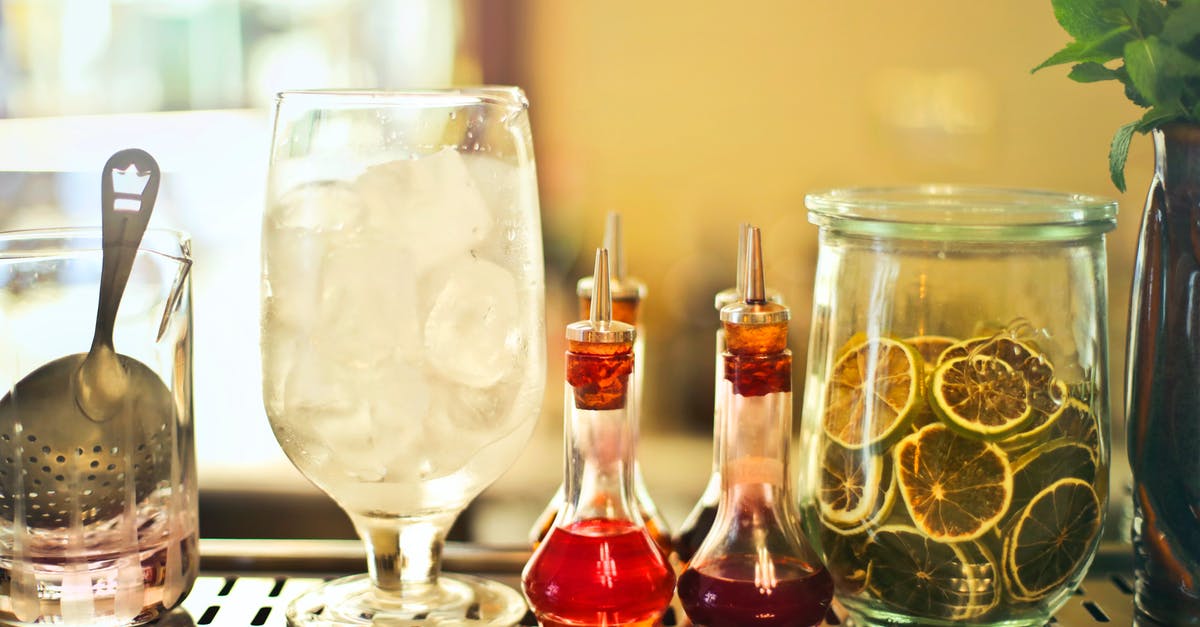Why is Rum not affected by distillation like Vodka is?

Is this true:
Distilled alcohol such as gin, vodka, scotch, whisky and rye are produced from fermentation and distillation of wheat, barely or rye. The distillation process separates the alcohol from the gluten proteins, producing an extracted product that is gluten free. Despite being manufactured from grains that contain gluten, the final product contains NO gluten.
Rum is distilled from sugar cane and is high in FODMAPs, so avoid if you can. However, it is a gluten-free option safe for those with celiac disease.
Why by vodka is the gluten gone but by rum the sugar still an issue if they're both distilled?
Quoted source: https://stephanieclairmont.com/alcohol-doesnt-make-belly-ache/
Best Answer
There's 2 different statements there:
- Distillation makes alcohol gluten free
- Rum is gluten free but high in FODMAPs
Both could be independently true or false, there's no logical tie between the two. Some of the information in that article is incomplete and/or wrong:
- Distillation does not result in gluten free alcohol in all cases. It reduces gluten a substantial amount but there is frequently traces left which may not be tolerated. The standard I've heard for gluten free is less than 20 parts per million, but that 19ppm may still cause a problem
- Gin and Vodka are made from wheat, barley or rye. This isn't always the case, any sugar-producing plant can be used for gin and vodka, for instance beets, potatoes, grapes, sugar cane, corn, etc. There's plenty of grape and potato vodka and gin, which are gluten free because the sugar source never had any in the first place
- Not all whiskey is made from wheat, barley or rye. Some whiskeys like bourbon are made from corn, although the requirement is only 80% so some may contain wheat as well
Repeated distillation can produce a pure alcohol, however it would remove the compounds that give spirits their flavor. Alcohol stills used to make drinking spirits are often shaped in specific ways to retain flavor rather than get rid of it. Some of these flavor compounds aren't friendly to people with stomach problems, so the less flavor the better essentially if you have issues. It helps of the sugar source is bland to begin with and there's no flavor additives. Rum has lots of flavor after distillation because sugar cane has flavor, whisky has flavor from the grain, but has more added if it's smoked (Scottish whiskeys are peated) and gets further from the barrels its aged in. Potatoes are comparatively bland, and vodka isn't generally barrel aged (it is available but it's not the clear stuff you know) so it's a clearer and "cleaner".
Pictures about "Why is Rum not affected by distillation like Vodka is?"



Quick Answer about "Why is Rum not affected by distillation like Vodka is?"
The distillation process separates the alcohol from the gluten proteins, producing an extracted product that is gluten free. Despite being manufactured from grains that contain gluten, the final product contains NO gluten." Rum is distilled from sugar cane and is high in FODMAPs, so avoid if you can.How is rum different from vodka?
In summary, rum comes from sugarcane juice and molasses, while vodka is from wheat and potatoes. Rum has a sweet taste and aroma, while vodka will only be a flavored wine once you infuse fruit or other additives. Mixed drinks like Martinis are perfect with vodka.Can rum be distilled?
Rum can be made by distilling the beery type liquid produced from fermented fresh sugar cane juice. This method of rum production is common on the French islands, particularly Martinique where it is called 'rhum agricole'. Elsewhere, it is rare to find rums made directly from sugar cane juice.What is the difference between rum whiskey and vodka?
Comparison Table Between Vodka and Rum. Vodka is a distilled alcoholic drink, which contains grains or potatoes as the main ingredients. Rum is a distilled and fermented alcoholic drink, which is composed of sugarcane juice. The place of origin of vodka is Russia and Poland.Is vodka or rum stronger?
Vodka vs Rum Vodka has a alcohol content of 40%-50%, whereas rum has a alcohol content of 37. 5%-80%.What is Distillation \u0026 fermentation? Hindi | क्या है Fermentation \u0026 Distillation सरल भाषा में जानिए
More answers regarding why is Rum not affected by distillation like Vodka is?
Answer 2
Some rums contain sugar because the producer adds it after distilling, presumably because it improves the taste, which (AFAIK) is rather unheard of for other spirits. Some non-authoritative sources:
https://vinepair.com/wine-blog/does-rum-have-sugar-in-it/
http://www.alcademics.com/2014/01/how-much-sugar-is-added-to-your-rum.html
http://refinedvices.com/forums/viewtopic.php?f=4&t=485&p=2515#p2515
Note that not all rums contain added sugar.
Answer 3
Assuming your source speaks the truth, different ingredients, fermentation methods, and distillation procedures result in wildly varying beverages. Vodka's fermentation and distillation are generally different from rum, and the resulting spirit tends to be lower in congeners and other non-ethanol substances (unless added after distillation).
Your source, however, is not necessarily correct. Both the FDA and the TTB disagree, and have ruled that you cannot claim as "gluten free" any alcohol beverage made from gluten-containing grains, no matter distillation method you use (bolding mine):
Consistent with the new FDA regulations, TTB will continue to consider “gluten-free” label claims for alcohol beverages that are made from gluten-containing grains to be misleading to consumers who are seeking to avoid the consumption of gluten for health reasons. However, products made from gluten-containing grains may be labeled with a statement that the product was “Processed,” “Treated,” or “Crafted” to remove gluten, if that claim is made together with a qualifying statement that warns the consumer that the gluten content of the product cannot be determined and that the product may contain gluten.
You can read a full explanation on their rationale here.
Sources: Stack Exchange - This article follows the attribution requirements of Stack Exchange and is licensed under CC BY-SA 3.0.
Images: Chris F, Helena Lopes, Michal Lizuch, Andrea Piacquadio
